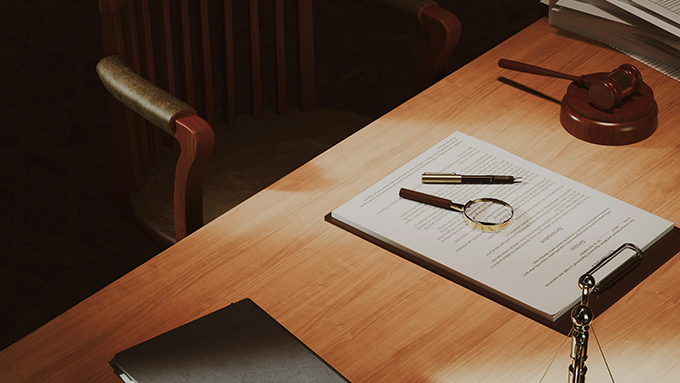The Review of the Decision of the Court of Cassation as a Result of the Appeal for the Sake of Law
Introduction
In its decision numbered 2019/6552 E. 2019/17198 K. and dated 02.10.2019 (“Decision”),[1] the 9th Civil Chamber of the Court of Cassation (“Court") has examined the first instance court"s decision upon the request of appeal for the sake of law by the Ministry of Justice and the Court of Cassation Prosecutor"s Office. The first instance court has rejected the case on procedural grounds that the advance payment of evidence required for expert review has not been deposited within the definitive period given set forth by the court.
The court made an evaluation that would constitute a precedent by emphasizing the concepts of advance on evidence and advance on costs. Consequently, it was concluded that the advance payment to be taken for submitting evidence is not a cause of action, unlike the advance on costs and, therefore, the decision of rejection on procedural grounds is found to be incorrect. According to the Decision, the first instance court should have made a decision based on the present evidence by accepting that the party has waived that evidence. As it will be examined below, misunderstanding the difference between advance on evidence and advance on costs would result in negative consequences in terms of the outcome of the case. The Decision has focused on the characteristics of these two concepts and reached significant conclusions in terms of procedural law. The decision is also important due to the fact that it has been given as a result of appeal for the sake of law.
Summary of the First Instance Court Decision
The first instance court granted two weeks as the definitive term for the plaintiff and warned the plaintiff’s attorney that in the absence of advance payment for evidence, the plaintiff would be deemed to have waived its right to refer to that evidence. However, the plaintiff’s attorney did not pay the advance on evidence for the expert examination within the granted definitive term, but paid only after the expiry of a two-week period. According to the decision of the first instance court, if any of the parties relies on evidence, it is compulsory to pay the advance on this evidence. Therefore, as the expert review is requested in the statement of claim, the plaintiff must pay the advance on evidence. It was concluded in the decision that the plaintiff has renounced to rely on this evidence, since he did not deposit the advance on evidence within the definitive period, and the case was rejected on procedural grounds.
Request for Appeal for the Sake of Law
The applications to appeal for the sake of law have been made by the Ministry of Justice’s notification dated 02.08.2019 and numbered 1159/19357, and the notification by the Court of Cassation Prosecutor"s Office dated 21.08.2019 and numbered 2019/83943. Both authorities indicated that the cost required for the expert report on which the plaintiff relied should be accepted as advance on evidence; it is a mistake that the first instance court rejected the case on procedural grounds by accepting the required amount as advance on cost while it should have made a decision on the merits of the case with the present evidence, in accordance with Article 324 of the Code of Civil Procedure numbered 6100 (“CCP”) entered into force on 01.10.2011.
Concepts of Advance on Cost and Advance on Evidence
The Decision states the advance of costs is regulated as a cause of action under Article 114/1-g of the CCP and defines causes of action. Accordingly, causes of action are conditions that are required for the court to evaluate the merits of the case. In other words, causes of action are conditions regarding public order, not to bring an action, but for the court to examine the merits of the case.
The nature of advance of costs as a cause of action is not disputed, since there is an explicit provision stating this. Pursuant to another provision regarding advance on costs, Article 120 of the CCP, the plaintiff shall deposit the fees for the proceedings, and the amount that is stated in the tariff issued annually by the Ministry of Justice to the court’s pay desk when bringing an action. The second paragraph of the abovementioned provision regulates that in the case where the deposited amount is insufficient, the court will grant two weeks of a definitive period to the plaintiff to cover the costs.
The advance on evidence is regulated in Article 324 of the CCP:
Advance on Evidence
Article 324
(1) Each party shall deposit the advance determined by the court for the evidence which it requests for presentation within a definitive period of time. If the parties jointly request the presentation of the same evidence, they shall pay the required advance by one-half, each.
(2) If one party fails to meet its advance payment obligation, the other party may deposit it. Otherwise, the presentation of the evidence shall be deemed to have been waived.
(3) The provisions on lawsuits and cases which the parties cannot dispose of freely are reserved.
The Decision refers to Article 205 titled “Payment of Fees, Advance on Costs and Advance on Evidence” of the Regulation on Performing the Administrative and Editorial Services of the Regional Courts of Justice and Courts of Original Jurisdictions and Public Prosecutor’s Offices. The said regulation is important in order to understand the difference between advance on evidence and the advance on costs:
Payment of Fees, Advance on Costs and Advance on Evidence
Article 205
(…)
(3) If it is understood during the hearing that the advance on costs is insufficient, the court shall give the plaintiff two weeks as the definitive period for the completion of this deficiency. If the advance on costs, which is a cause of action, is not deposited or completed, the case shall be rejected due to the absence of the cause of action.
(4) Each party shall deposit the advance determined by the court for the evidence for which it requests its presentation within a definitive period of time. Advance on evidence refers to the amount to be paid by the parties within the definitive time specified by the court for covering the expenses of the evidence on which the parties rely. If the parties jointly request the presentation of the same evidence, they shall pay one-half of the required advance, each. If one party fails to meet its advance payment obligation, the other party may deposit it. The party who does not deposit the advance on evidence shall be deemed to have waived the presentation of that evidence. The provisions of lawsuits and cases upon which the parties cannot dispose of freely are reserved.
By evaluating the provisions of the CCP and the regulation together, the Court of Cassation states that the advance on costs, which is a cause of action, should be taken into consideration for the litigation costs other than the cost to provide evidence. Pursuant to the Decision, it is not possible to evaluate the costs for hearing a witness, obtaining an expert report, or for the court to viewing within the scope of advance on costs as per Article 324 of the CCP. The previous decisions of the Court of Cassation confirm this situation[2].
Conclusion
The Court of Cassation, with its decision numbered 2019/6552 E. and 2019/17198 K., has examined the concepts of advance on evidence and advance on costs, and concluded that they are separate concepts with different effects as to the course of the case. The advance on costs regulated under Article 114 of the CCP is a cause of action, while the first instance court must reject the case in the absence of advance payment of costs on procedural grounds before examining the merits, it is not applicable for advance on evidence. In this case, the first instance court should make a decision on the merits of the case with the present evidence when it realizes that the advance on evidence has not been deposited by the related party within a definitive period.
[1] Official Gazette, No. 30968, 04.12.2019.
[2] Decision of the General Assembly of the Court of Cassation, No. 2017/2528 E. 2018/114 K., 07.02.2018 (www.kazanci.com); Decision of the 13th CC of the Court of Cassation, No. 2016/24537 E. 2017/2528 K., 27.02.2017 (www.kazanci.com).
All rights of this article are reserved. This article may not be used, reproduced, copied, published, distributed, or otherwise disseminated without quotation or Erdem & Erdem Law Firm's written consent. Any content created without citing the resource or Erdem & Erdem Law Firm’s written consent is regularly tracked, and legal action will be taken in case of violation.
Other Contents

Mediation was introduced into the Turkish legal system in 2012 as a voluntary dispute resolution mechanism and has produced successful outcomes over time.
As of 1 January 2018, mediation became a mandatory precondition to litigation in certain disputes arising from labor law; as of 1 January 2019…

The Court of Cassation General Assembly on Civil Matters (“General Assembly”), by its decision dated 08.10.2025 and numbered 2024/572 E. and 2025/607 K. (“Decision”), in the dispute brought before it, prior to examining the merits of the matter, discussed and assessed as a preliminary issue whether the…

Article 326 of the Turkish Code of Civil Procedure No. 6100 (“CCP”) stipulates that, where the parties are each partially successful in the proceedings, litigation costs shall be allocated between them in proportion to their respective degrees of justification…

One of the most significant safeguards afforded by the right to a fair trial is the right of access to a court. Moreover, one of the essential components of the right of access is the ability of individuals to make effective use of appellate and other legal remedies…

The Turkish Constitutional Court (“TCC”), in its decision dated 17 June 2025 and numbered E.2024/237, K.2025/137 (“Decision”), decided that significantly reshapes civil procedural law. The Court annulled the phrase “…and this decision shall be binding on the other court” contained in Article 166(1) of the Code...

With its decision dated 22.05.2024 and numbered 2022/31465 E. (“Decision”) published in the Official Gazette dated 22.10.2024 and numbered 32700, the Constitutional Court examined the claim that the decision to deem the case as not filed due to the failure to complete the addresses and identification numbers...

Under the principle of “procedure precedes substance” prevailing in Turkish law, the correct determination of the period for filing a lawsuit is crucial. In its decision dated 02.05.2024 numbered 2020/13187 E. and 02.05.2024 K. (“Decision”), the Constitutional Court examined the claim that the right of access...

The Code of Civil Procedure (“CCP”) regulates the judicial procedure in our jurisprudence and foresees prescription periods at each stage. Prescription periods constitute a form of sanction that causes the loss of the use of the right for the party who does not comply with the time limit...


The concept of intervention has fundamental differences in administrative trial procedure compared to civil procedure. These differences are critically important in terms of the intervenor’s right to seek legal remedies in the administrative trial procedure. As is known, there are two ways to become a plaintiff in an...

With its decision dated June 8, 2023 on the application numbered 2019/17969, the Constitutional Court, as published in the Official Gazette numbered 32331 on October 6, 2023 (“Decision”), considered the rejection of a lawsuit for an unquantified debt related to the payment of labor dues due to the absence of a legal...

The Grand General Assembly of the Unification of Jurisprudence ("GGAUJ") ruled with the Decision of the Grand General Assembly of the Unification of Jurisprudence dated 28.04.2023 numbered 2021/5 E. 2023/2 K. ("Decision") that if the legal remedy period is erroneously indicated longer in the decision in...

The issue of proving damages in cases related to the excess damages is frequently subject to the examination and evaluation of both the Supreme Court and different chambers of the Court of Cassation. With its decision dated 29.03.2022 and numbered 2021/928 E. 2022/401 K., the Court of Cassation General...

Under Turkish law, the term “limits of certainty” refers to monetary limits to the rights of appeal and cassation. While it is possible to appeal to a higher court against the decisions of the courts of the first instance and the courts of appeal where the amount of the claim or the value of the case is above these...

The Court of Cassation General Assembly of Civil Chambers and the Chambers of the Court of Cassation both issued opinions on whether a lawsuit filed for not due receivables should be dismissed with or without prejudice by the court on the grounds that the time of performance has not yet come, and whether the...

In general terms, the amendment of pleading is accepted as an exception to the prohibition of expanding and amending claims and defenses. With the amendment of pleading, the parties can partially or completely correct or amend the procedural actions that they could not perform due to the prohibition...

The possibility of appellate review of questions of fact, as well as of law, was introduced into Turkish law with an amendment made in the abrogated Civil Procedure Code No. 1086, through Law No. 5239 dated 26.09.2004. However, the Regional Courts of Appeal, which are the courts...


Recently, the requirements of unquantified debt lawsuits have been subjected to the examination and review of the Court of Cassation. The Court of Cassation General Assembly of Civil Chambers, in its decision dated 07.07.2021 and numbered 2021/485 E. 2021/971 K. (“Decision”), examined whether...




In a state where the rule of law prevails, legal remedies are indispensable to eliminate judicial errors through the supervision of court decisions. However, legal disputes must be settled at some point and decisions must be finalized. In this Newsletter, appellate procedures against final court decisions will be...
















